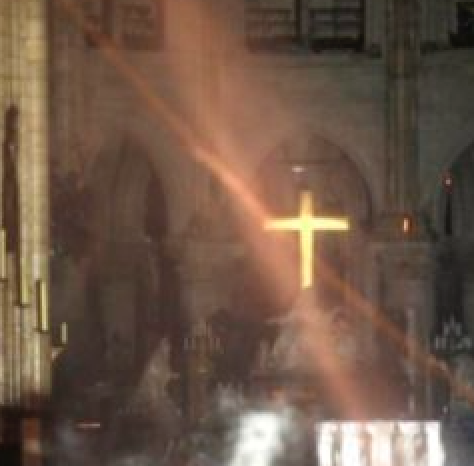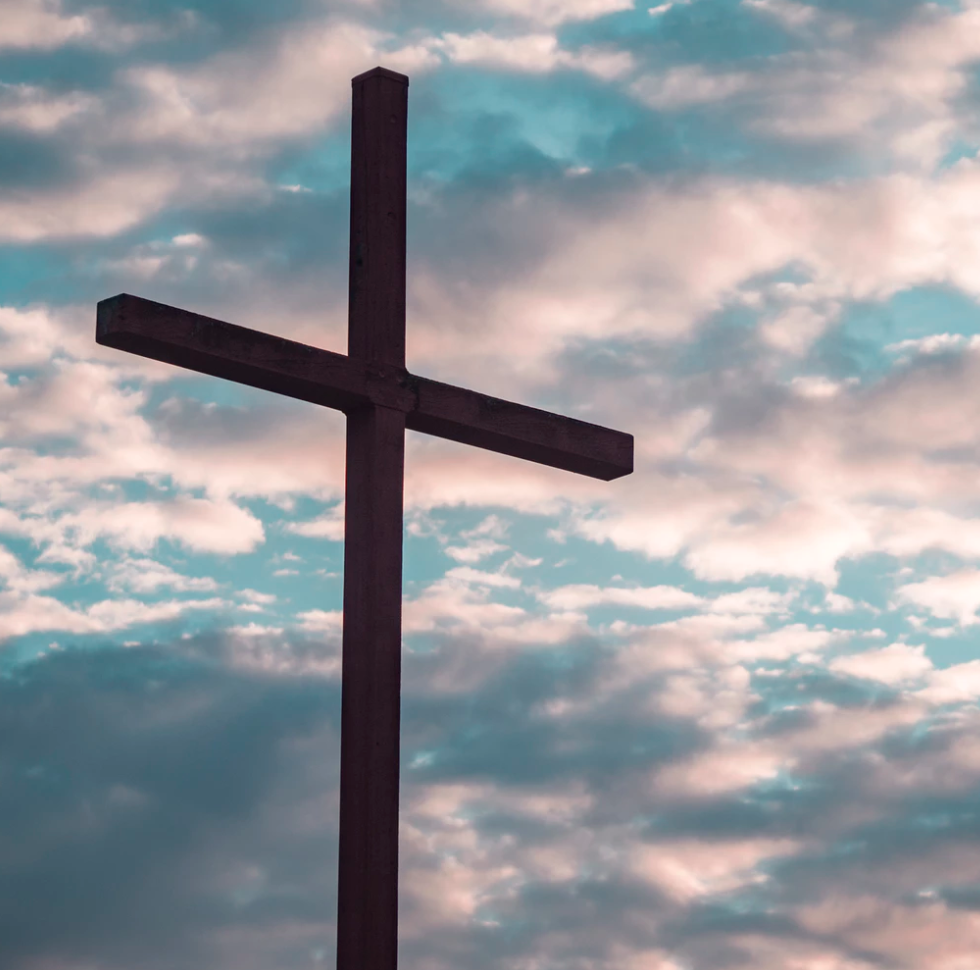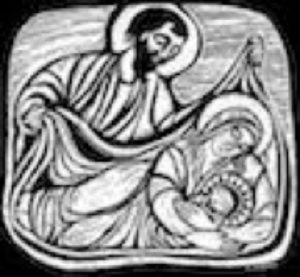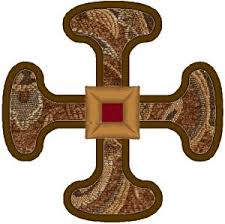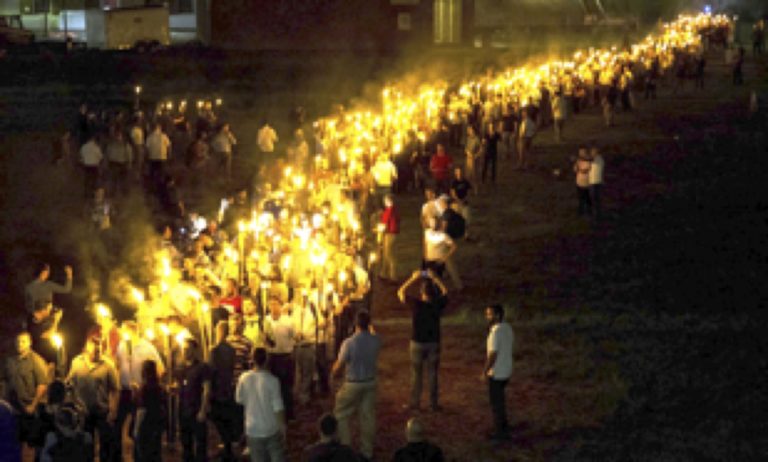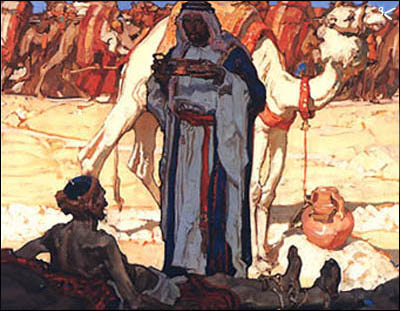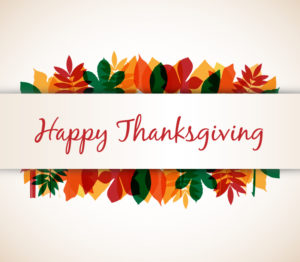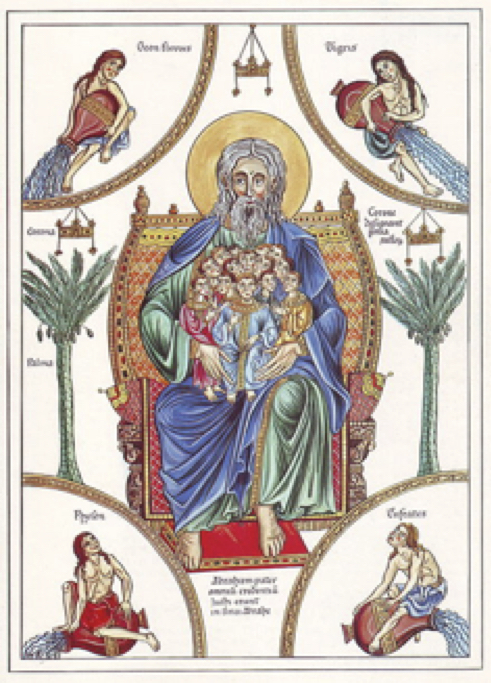A
Why do we seem inherently unable to be more responsive to the world’s needs; where instead we seem instinctually inclined to put ourselves and our own needs ahead of everything and everyone else? What might we do to be less inclined to reflect what seems to be so much a part of our human nature? If there is anything akin to a sacred spark within us, with the example of Jesus’ own way of the cross?
A Rationale for Religious Ritual When the Rationality of Words Fail Us
When there is an absence of conscious symbolic ritual, what happens with such a lack of awareness about the power that signs and symbols play in our lives, and the depth or richness of value and meaning they provide? How can we otherwise express what is ultimately inexpressible?
Restoration of a Vision from the Christian Faith Tradition
What might constitute an adequate improvement to the world order? This commentary constitutes an exploration of this pesky, perennial question about "a better world" from the vantage point of one faith tradition, and in contemporary context. Its intention is not to offer novelty or any new revelatory insight, but rather to remember and restore a perspective that lies at the heart of a biblical gospel tradition; based on the teachings of a pre-Easter human Jesus.
A Response by
As anyone who’s read or listened to me share my journey over the years knows full well, I have now arrived at a place (at least for now!) where – in my thinking, and with the window through which I see the world these days – I call myself a “post-theist.”
The congressional hearings about to begin over a Supreme Court nominee will largely hinge on the political philosophies of different elected officials; who will view the judicial record of the candidate through the lens of their separate interpretations of constitutional law, and how it should be applied. How is the task of interpretation and application different, or the same, when it comes to “sacred” scripture and constitutional law?
Postscript of an Independence Day Observance
What happens when the discernment of one citizen’s religious beliefs are deemed to be discriminatory; infringing upon the civil liberties and rights of another citizen? In fact, what constitutes any set of beliefs as “religious,” with the constitutional protections accorded it?
Mixing politics and religion is far more than tampering with a combustible concoction. Because politics and religion both attempt to address the same needs, dreams and desires, values and principles – they are essentially synonymous terms.
A reflection and commentary for Holy Week & Easter Observances from the perspective of a progressive thinker from the Christian faith tradition.
Symbol, Ritual, and Learning to Distinguish True & False Myths Because religious progressives often like to emphasize actions over words, and doing over some musty, ancient, stratified
Nowadays we talk about what’s real and unreal as real (news) or fake (news). But it’s all based on establishing some set of principles or criteria that one can assert is believable, or not. But when the ground shifts beneath what one once considered solid conviction, what’s left? Are there any underlying fact, principles or life experiences upon which one can still say, “This I believe. Always have, and always will?” Note: this commentary includes a review of Jack Spong's latest book, "Unbelievable: Why ancient Creeds Nor the Reformation can Produce a Living faith Today."
The Problem with Blessings and Curses
“Have a blest day?” What in this world does that mean? Better luck or good karma, instead of bad? In the ancient world, denoting someone as “blest” was a way of expressing a deity’s special favor towards that person. If that sounds quaint, there are still plenty of people today who believe they can curry favor or improve the odds of achieving more blessings than curses; while politicians routinely conclude their speeches by invoking the Almighty to bless the good ‘ol USA. There’s just one problem. It doesn’t work.
For anyone who might still want to hold out that Jesus is still the reason for the season, the obvious question is why? If there’s any lingering claim to Jesus’ divinity by way of a virgin birth that could actually result in some sort of redemption for this weary old world, I might be all for it. But that’s an ancient hope, borne of a fanciful legend, whose fruition will take more than singing some beloved old carols, all the while debating whether or not to spike the eggnog.
A Call for a New Christology You can read and/or print a pdf copy of this commentary Here. NOTE: An earlier
A Commentary in the Aftermath of Recent Acts of Violence, Domestic Terrorism & Yet Another Culture War
Not long ago, I received a group email message from an acquaintance. A devout Muslim, he’d written to his circle of friends to tell us he was leaving the country in a few days to undertake a pilgrimage known as the Hajj. The purpose of Ejaz’ message – and as part of his required preparations for his pilgrimage — was to ask forgiveness for any wrong he may have intentionally or unintentionally committed with anyone in his circle of friends and acquaintances.
Saying Goodbye to “God” in Sacred Text
What good is “God?” We know well how much violence is committed in the name of “God.” If we were to delete both our traditional Western word and notion of “god” from both our speech and thinking, what are the implications for such things we ourselves know and experience to be true in our own human experience? I’m talking about conceiving of such things as love, compassion, mercy, grace, reconciliation, forgiveness, even absolution, redemption, and salvation. Part one in this series considers a scripture text considered sacred, but noticeably absent is the presence of any deity.
The idea of “God” has been problematic for as long as the notion existed. As a result, “God” has admittedly been for me a direction; but neither a destination, nor even a companion along the way any longer. As the poet suggests, if the notion of “god” is directional movement from a former past to the present now, then perhaps it is the time to leave the “G” word behind. What does that mean?
The Emmaus Experience of Transformation
The Emmaus legend is about both the inevitability of change and the possibility of transformation. … In all the swift and varied changes of this world, the elusive goal of converting hearts and minds remains optional.
Recently I’ve become aware of some significant changes occurring in the personal lives of some of the folks that gather in our monthly Pathways circle. Some changes are welcome, while some are not. It’s a mixed bag. It all reminds me, once again, of the only constant thing in our lives. It is the progressive changes that continue unabated, with whatever number of days we are each randomly accorded. Me included.
Contrary to the old adage, fences do not necessarily make good neighbors. In our election campaign season this last year, the winning candidate promised to build a wall and have our neighbor pay for it. We’ll see. Now by presidential executive order, an indefinite ban on all refugees from certain predominantly Muslim countries entering our country has also been put in place.
The Christmas holidays are even trickier for those who give even a token nod to a long-held doctrinal claim of orthodox Christianity; that a theistic god somehow enters into the human story, rather than arising out of our own consciousness and human imagination. How then might a self-professed non-theist celebrate the nativity of a Galilean sage from days long gone by, and call it holy? It lies in an ancient message that – more often than not – runs counter to the cultural and political climate; but is central to the character and teachings of Jesus.
Part 1 of 2-Part Article
he Thanksgiving holiday in America is a national observance that has been traditionally framed in a religious context. Whether you like roast turkey or not, one is expected to be thankful for it, and express one’s gratitude to the “Giver” of all good gifts. For those of us who have enough, or more than enough, it’s all sufficiently palatable; if not theologically problematic to sing the old standard hymn in the face of arms-length hunger and poverty.
Second in a Series exploring the shared Abrahamic roots of three faith traditions
In a world so filled with forced migration and walls of division, the three Abrahmic faith traditions can share a common pilgrimage of faith over belief. It is an act of trust. Put another way, it is an act of submission that draws one into another kind of journey. In this sense, all children of Abraham are "muslims."
A Series exploring the Shared Abrahamic roots of Three Faith Traditions, Part I: Jewish Roots
A Presbyterian politician who wants to be the leader of the free world claims to have written a great book; second only to the Bible. He has promised to “protect Christianity,” and ban all Muslims outside the United States from entering. It remains unclear if he expects all radical Jihadists to self-profess at the border; instead of -- say -- swearing to be as Presbyterian as he is. Beneath the superficiality of such political idiocy, an appreciative consideration of the shared Abrahamic roots of three great faith traditions might be helpful in finding ways to reconcile the false divisions that the most strident voices of ignorance seem to propagate. This is the first in a series of commentaries that attempt in some small way to make such a modest attempt. It begins where it all began; with Jewish roots and the mythic Hebrew character of Abraham.
The Brief Observance of a Holy Nativity
Even non-theists and progressive Christian types love to sing Christmas carols. And, as the British atheist, Alain de Botton, once said, "Religions are intermittently too useful, effective and intelligent to be abandoned to the religious alone." The annual observance of one holy nativity is the perennial reminder to respect and beatify the dignity and sacredness of every birth, everywhere.
When the Reason for the Season Goes Missing
This is the season Christian faith communities of every sort prepare in one way or another to observe the nativity of something deemed to be holy and salvific. We recall ancient prophecies that foretell a “prince of peace, and wonderful counselor” comes around each year with a message to save us from ourselves. (Isaiah 9:6) Once born into a world of violence and terror not unlike our own, the message remains unchanged. Regrettably, so too has been the obstinate ways in which we have collectively refused to live with one another in response to that message.

